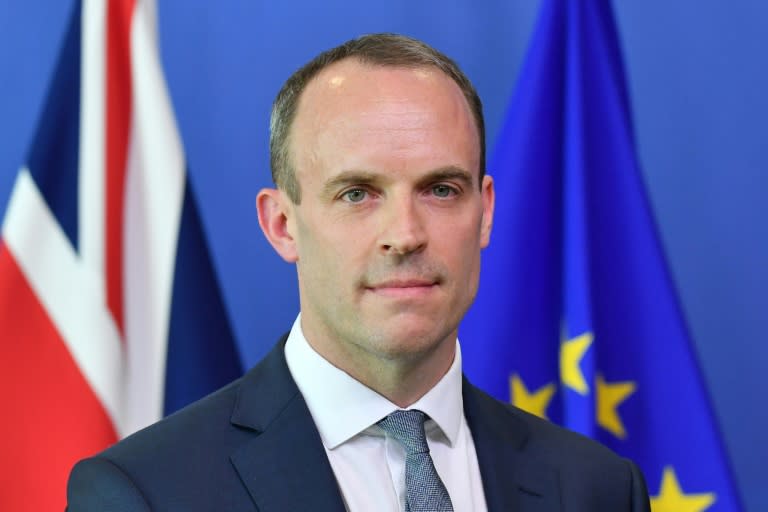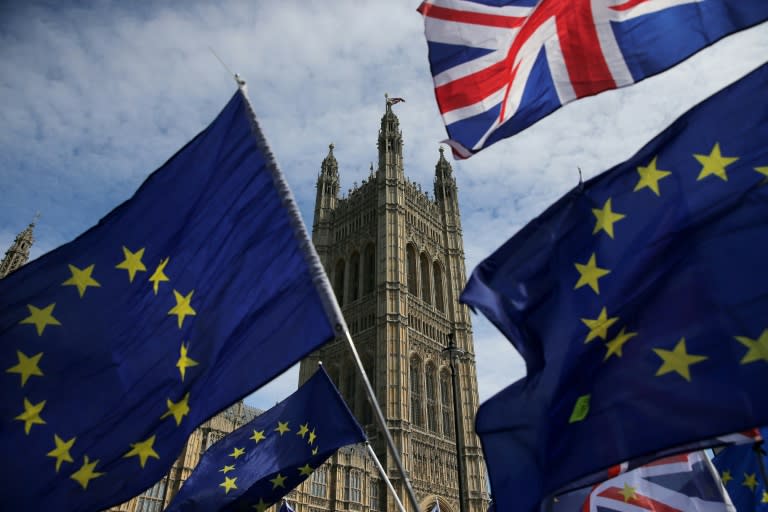UK to refuse Brexit bill without trade deal, says minister
Britain will only pay its EU divorce bill if the bloc agrees the framework for a future trade deal, the new Brexit Secretary warned in an interview published Sunday. Dominic Raab, who replaced David Davis earlier this month after he quit the role in protest over the government's Brexit strategy, said "some conditionality between the two" was needed. "Article 50 requires, as we negotiate the withdrawal agreement, that there's a future framework for our new relationship going forward, so the two are linked," Raab told the Sunday Telegraph, referring to the EU treaty mechanism used to trigger Brexit. "You can't have one side fulfilling its side of the bargain and the other side not, or going slow, or failing to commit on its side." Britain is set to leave the European Union on March 30 next year. The two sides want to strike an initial withdrawal agreement by late October, in order to give parliament enough time to endorse it, before reaching a broader deal on their future relationship. The British government has sent mixed signals so far on its divorce bill. Prime Minister Theresa May agreed in December to a financial settlement totalling £35 to £39 billion ($46-51 billion, 39-44 billion euros) that ministers said depended on agreeing future trade ties. But cabinet members have cast doubt on the position. Finance minister Philip Hammond said shortly afterwards he found it "inconceivable" Britain would not pay its bill, which he described as "not a credible scenario". Raab met the EU's top negotiator Michel Barnier for the first time this week and will return for further talks on Thursday. Following the meeting Barnier said the priority in talks should be on finalising the initial agreement. Meanwhile the European Commission, the EU's executive arm, warned remaining member states and businesses to "step up preparations" for no deal. Raab told the BBC on Sunday the withdrawal agreement could be reached by October if the bloc matched Britain's "energy, ambition and pragmatism". But he reiterated it was also increasing no-deal planning. May's blueprint for the future relationship, formally unveiled in early July, envisages a free trade area for goods through a "facilitated customs arrangement" alongside a "common rulebook" with the EU. It has faced severe criticism, including from within her own cabinet and Conservative Party, for keeping Britain too close to Europe. Former foreign secretary Boris Johnson and Davis both resigned in opposition. A new YouGov poll published by the Sunday Times showed just 12 percent of people backed the proposals as "good" for Britain while 43 percent thought they were "bad". Amid a growing backlash, 38 percent of respondents said they would back a new right-wing party committed to Brexit.



